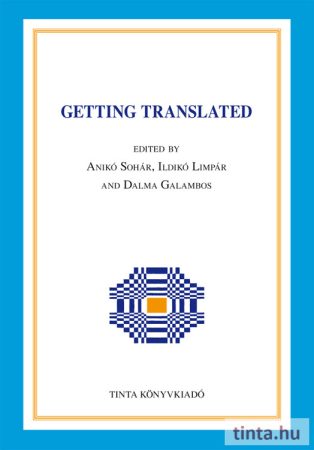- Nuove Uscite
- Csomagban olcsóbb
- Mindenki angolul tanul
- Előkészületben
- Nyelvünk virágai
- Idézetek, szállóigék, bölcsességek
- Szólások, közmondások
- Felvételizőknek
- A magyar nyelv kézikönyvei
- A magyar nyomtatott örökség feltárása
- Anyanyelvi felmérők
- Anyanyelvi kompetenciafejlesztő munkafüzetek
- Az ékesszólás kiskönyvtára
- Bibliotheca Regulyana
- Diszlexia, diszkalkulia
- Életrajz
- Híd szótárak
- Iránytű sorozat
- Ismeretterjesztő
- Kétnyelvű könyvek nyelvtanuláshoz
- Kifestőkönyvek, színezők
- Kommunikáció
- Lexikográfiai füzetek
- Lexikon, enciklopédia
- Mesekönyv
- Mesterművek
- Modern Nyelvoktatás
- Naptár, notesz
- Notesz
- Növény- és állatnevek
- Nyelvészet
- Nyelvi játékok, fejtörők
- Nyelvtani munkafüzetek az 5-12. évfolyam részére
- Nyelvtanulás
- Segédkönyvek a nyelvészet tanulmányozásához
- Szépirodalom
- Szótár
- Történelem
- Útleírás
- Vallás
- Zene
- E-könyv
- Folyóirat
- 2025-ben megjelent könyveink
- 2024-ben megjelent könyveink
- 2023-ban megjelent könyveink
- 2022-ben megjelent könyveink
- 2021-ben megjelent könyveink
- 2020-ban megjelent könyveink
- 2019-ben megjelent könyveink
- 2018-ban megjelent könyveink
Getting Translated
Since Hungarian is a linguistically isolated language in Central Europe, translation has always played a very important, albeit often unseen role in our culture. Yet it is hardly surprising that Translation Studies as an independent discipline did not exist in Hungary before the collapse of the Socialist regime, and the ensuing political transformation in 1989–1990. The nineties brought along the official introduction of this relatively new branch of knowledge; however, literary scholars and linguists talked about translation from their own perspectives, using their own terminology, creating their own research projects without ever acknowledging one another, very often not even aware of the work going on in the other field—thus reinventing the wheel repeatedly. This volume intends to break this long-standing tradition: it has invited papers from both fields of study. However, the papers are not divided according to the author’s discipline, but based on their main concern, that is why the book has two parts: one dealing with translator and interpreter training and related issues, the other tackling translation research projects, so the dividing line is applied and pure (or basic) research, not the approach. The introductory essay, written by Anthony Pym, reveals the underlining theme of the volume, fantastically testifying why translating and interpreting must aim at surpassing linguistic precision to reach a faithful conveying of meaning; accordingly, several of the following chapters accentuate the special needs and methods of translating and interpreting in various situations, be they related to translating web pages, assuring singability, or even cooperation in space. The latest research results published here point to exciting, novel approaches in Hungarian Translation Studies and demonstrate that the future of this field of study indeed lies in a fruitful co-operation among disciplines and scholars.
-
Szerkesztő Anikó Sohár, Ildikó Limpár, Dalma GalambosSorozatszám 211Oldalszám 164Kötés típusa puhafedelesFormátum B/5Codice articolo 9789634092162Peso 280 g/db
-
Foreword / 9
Károly Pintér
Introduction
Merkel Responds to Reem: What We Should Be Training Mediators for / 11
Anthony Pym
Part One: Translator and Interpreting Training
First-Year Translation/Interpreting Students’ Views on Sub-Competences Needed for Language Mediation / 21
Márta Lesznyák and Mária Bakti
Practical and Theoretical Lessons on and from Website Translation / 38
Márta Kóbor
Mother Tongue in Translation Training / 52
Anikó Makkos
University Lecturers’ Translation Needs in Central Mexico / 61
Krisztina Zimányi, Luz María Muñoz de Cote and John O'Shea
Part Two: Translation and Interpreting Research
Singability in Opera Translation: Seven Translations into Hungarian of Mozart-da Ponte’s The Marriage of Figaro / 79
Gyöngyvér Bozsik
“Benign Colonization:” Domestication and its Two Faces / 89
Zsuzsanna Csikai
The Final Frontier of Interpreting: Effects of the Dual-Language Policy on Communication in International Human Spaceflight / 101
Melinda Dabis
A Model of Discourse Segmentation for Translated Corpora in Rhetorical Structure Theory / 114
Éva Viola
The Modification of Translation Universals in Revised Texts / 125
Edina Robin
Afterword
A Run-Through of the History of Translation Studies in Hungary / 148
Anikó Sohár
About the Contributors / 155
Abstracts / 159










